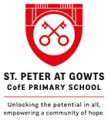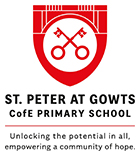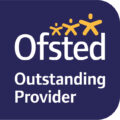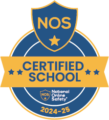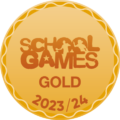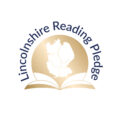Reading at home
Reading Diary Comments in EYFS
Reading Diary Comments in LKS2
Reading Diary Comments in UKS2
This link will take you to a document with lots of useful reading and book related websites.

Looking for book recommendations for children who have been hooked in by a particular series or author and are ready to branch out? From Harry Potter and Tom Gates to Rainbow Magic and The Worst Witch, Books for Topics have got you covered with their Branching Out booklists and free, printable display posters.
Vocabulary
- Find 5 interesting words in your book. Write down what each one means. Now think of your own sentences that use the words.
- Make a list of smaller words hiding inside smaller words in your book. E.g. Chalkboard = chalk + board, together = to, get, her
- Find 5 adjectives in your book. Now try to use them in your own sentences
- Make a list of words from your book that other children may find hard to spell. Highlight the tricky part in each word.
- Find 5 adverbs in your book. Put them in alphabetical order.
- List any key words or phrases from the book.
- Draw and label a picture of a setting from your story. Copy words and phrases from the book that help describe the setting.
Fiction and non fiction
- List all the characters that appear in the story.
- Write some questions about events in the story. See if a friend can find the answers to your questions by using the book.
- Choose one character from the story. Find three things the author says about this character.
- Draw a picture of your favourite character. Label it with words the author uses to describe the character.
- Create a list of key words that you could use to make a glossary for your book. Now create a glossary with explanations of what each word means.
- Write down some facts you have learned from your book.
- Make a fact file about a topic from your book.
- Make up some questions about your book. Give them to a friend and see if they can use the book to answer them.
- Create a true/false quiz about the book. Try the quiz out on a friend.
Sequencing
- List all the events in your story in the correct order.
- Draw a story mountain or story map to show the events in the book.
- Draw a cartoon strip of the main events in the story.
- Sequence events from the story.
- Re-write the story in your own words.
- Make a timeline of events from the story.
- Imagine you are one of the characters from the book. Write a diary entry about an event from the book from that character’s point of view.
- How do you think a character was feeling at a key point in the story? Write their thoughts in a thought bubble?
- Write down three questions you would want to ask a character from the book. Now try to write their answers.
- Draw an outline of a character from the book. On the inside choose words that tell us about their character, on the outside write words that tell us about their appearance. Use the words to write a character description.
- Pick one character from the story, write a list of things you think they would like or dislike; e.g. favourite food, colour, t.v. programme etc. Find things in the text that support why you’ve made these choices about your character.
- Write three alternative titles for the book. Explain why you have come up with these titles.
- After finishing your book, think what would happen if there were an extra chapter; summarise what would happen in this chapter.
- Write a blurb for the book.
- Think of what might have happened before the story took place. Write this in your own words.
- Look at the front cover. What do your think is going to happen in this book?

Resource created by @primaryteachew
Links to websites:
There are some excellent free resources on the internet that you can access to support your child to read at home.
https://www.oxfordowl.co.uk/for-home/find-a-book/library-page/ has lots of free e-books for you to access. You need to register but they can then be accessed for free.
https://www.storylineonline.net/ This is a brilliant website where you can listen to authors reading their stories out loud.
https://www.amazon.co.uk/Best-Sellers-Kindle-Store-Childrens-eBooks/zgbs/digital-text/362219031/ref=zg_bs?_encoding=UTF8&tf=1 Amazon has a large collection of free e-books for you to download onto your device.
https://www.barnesandnoble.com/b/free-ebooks/nook-books/kids/_/N-ry0Z8qaZtu1;jsessionid=ED3DB252854391728670F5076A3EC9E0.prodny_store01-atgap11 Barnes and Noble offer a selection a free e-books.
